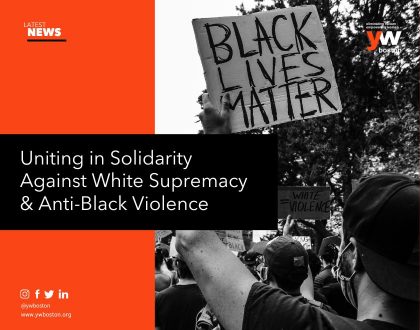Uniting in Solidarity Against White Supremacy and Anti-Black Violence

This past weekend, in Jacksonville, Florida, a white gunman entered a Dollar General store and opened fire, murdering three Black people: Anolt “AJ” Laguerre Jr., 19; Jerrald De’Shaun Gallon, 29; and Angela Michelle Carr, 52. Jacksonville law enforcement has confirmed that this was, without a doubt, a targeted attack motivated by racism and hatred of Black people. This attack was an act of domestic terrorism. Period.
These killings have resurfaced the anxiety, devastation, grief and trauma many Black people feel given the rise in anti-Black legislation, rhetoric, and violence all over the country. In Florida, we have a governor who is doing everything he can to try to uphold white supremacist ideals by erasing Black history and diminishing the value of Black legacies, Black culture, and Black lives. This weekend’s heinous attack can no doubt be attributed to the hateful language and actions coming out of the state’s highest office.
We continue to see these tragedies play out year after year, and each time we ask ourselves: When will enough be enough? As a society, we have become numb and are willing to accept mass murders in exchange for certain rights and privileges, but rarely do we contemplate what it’s like to live as a survivor of a family member whose life was taken during a racially motivated mass shooting.
We must resist the urge to turn away from these events and just hope that they won’t happen again. While we should all commit to uniting against racism, we must strive to be more than just “not racist”—we must be loudly, unapologetically, and unequivocally anti-racist. We have to look inward at the ways we as a society are contributing to systems and environments that allow racism and violence to thrive and commit to taking action against and challenging racist thinking, behavior, and institutions.
There are no words that fully explain the motives behind these tragedies, but Black communities are yet again trying to process what happened and how to keep themselves and their families safe in a world where simply going to the dollar store could result in their deaths.
As you move through the rest of the week, keep the following in mind:
- These incidents are extremely painful for Black people for many different reasons. Remember that this stress is compiled on other stressors, such as COVID-19 and other societal concerns.
- There is no one way to think, feel or respond. Each of us has perspectives that are influenced by our backgrounds, experiences, and knowledge.
- Support each other by being aware of your own needs, openly asking others what they need, and offering empathy and compassion, but be mindful about asking Black people to undertake additional emotional labor while addressing this tragedy in your workplace and social environments.
- Lean into the discomfort and be vulnerable.
I want to end with this simple quote by writer and activist Ibram X. Kendi:
“Racism is death. Antiracism is life.”
I encourage you to sit with this quote and think about what you can do today to fight the racist systems that allow innocent people to be murdered simply for existing.
In solidarity,
Beth Chandler
President and CEO, YW Boston
